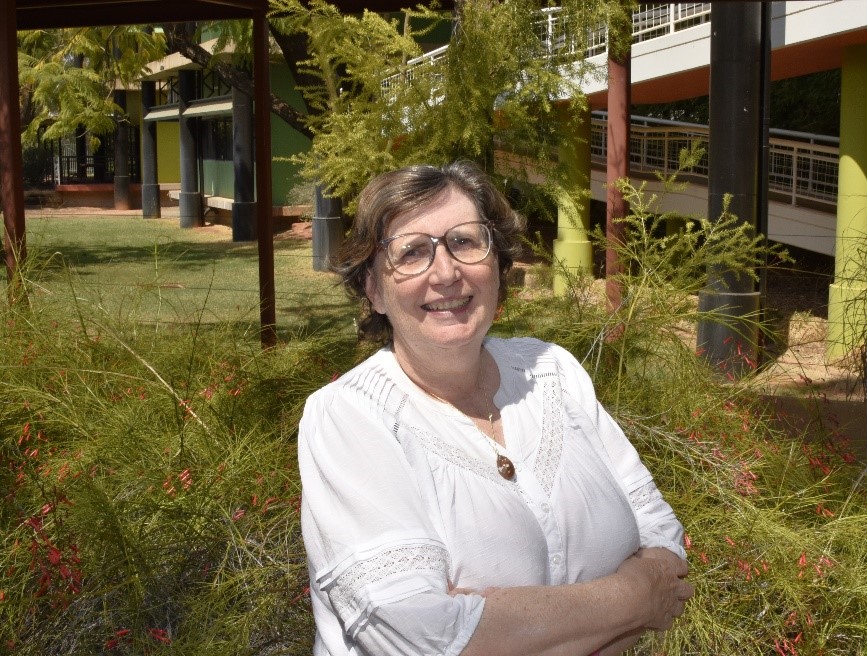Innovative Approaches to Conceptual Change and Gender Engagement in STEM Education
20 August 2025 - 20 August 2025
1:00PM - 2:00PM
This event will be in-person in the Teaching and Learning Centre - TLC205 and online via Teams. Contact ed.research@durham.ac.uk for more details about how to take part.
-
Free
Part of the School of Education Research Seminar Series.
/prod01/prodbucket01/media/durham-university/departments-/education/Research-Seminar-Series.jpg)
School of Education Research Seminar Series
This seminar will examine two areas of research:
- Supporting conceptual change and writing in physics, chemistry, biology and ecology through student-generated multiple representations
- Do STEM projects really interest girls in STEM? Engaging girls in STEM by allowing for agency through a creative wearable electronics project
Students often hold many persistent alternative conceptions in science and tend to write descriptive answers rather than causal explanations of scientific phenomena. The Thinking Frames Approach (TFA) is a multidimensional conceptual change approach that addresses students’ epistemological and ontological understandings of science, while supporting affective aspects of learning. Case studies of how the TFA has been used in topics as diverse as understanding Newton’s laws, the kinetic theory of matter, natural selection and desert ecology show that the TFA can be a powerful tool to support conceptual change and scaffold students’ written explanation skills in Grades 5-10, and across ability levels. The TFA asks students to present their explanations verbally, pictorially and in written form. The different types of explanatory drawings required depending on the science domain will be discussed.
Female participation in STEM subjects at senior high school and university, particularly in engineering, physics and computing, continues to be disproportionately low, compared to males. While providing more experiences with authentic projects integrating STEM domains has been proposed as a way in which to give all students experiences of the types of STEM jobs available, our research has shown that, in Australia at least, the types of integrated STEM projects that students are doing at primary and secondary level are generally unmotivating for girls and may even perpetuate some of the stereotypes about traits needed to succeed in STEM. This seminar will present an integrated STEM project designed to engage a more diverse range of student interest. The wearable electronics project asked students to design and make a wearable product of their choice using Arduino Lilypads, conductive thread and LEDs. The project gave a lot of choice to students, requiring futures reasoning and resilience in order to overcome challenges that arose. However, despite these challenges girls were generally highly motivated to complete their projects and discovered that they possessed some important traits for success such as creativity, persistence and collaboration skills.

Dr Felicity McLure is a Senior Lecturer in Education at Charles Darwin University, living in Alice Springs. She taught Science and was Head of Science for 13 years in international and Australian schools. Her research interests are in Learning Environments, student-generated multiple representations to support conceptual understanding and written explanations in science, integrated STEM education and gender, as well as school improvement through system-wide reform. She has published 27 research papers and 2 book chapters over the past 5 years (21% in the top-10% most cited documents according to Scopus) examining the Thinking Frames Approach, classroom emotional climate, specifically in integrated STEM classes and the effect of the emotional climate on gender-based engagement and motivation. The Thinking Frames Approach uses the affordance of student-generated multiple representations to develop students’ conceptual understanding, written explanations of scientific phenomena and to support student self-efficacy and engagement with science.
Recently, she led a multidisciplinary team to investigate the benefits to indigenous students of producing student-generated explanatory drawings for constructing understanding in desert ecology. At present she is working on a government funded project to understand STEM stereotypes and to engage girls in STEM.
Some of her most cited articles are:
McLure, F., Won, M., & Treagust, D. F. (2020). A sustained multidimensional conceptual change intervention in grade 9 and 10 science classes. International Journal of Science Education, 42 (5), 703-721.
McLure, F. I., Tang, K-S. & Williams, P. J. (2022). What do integrated STEM projects look like in secondary school classrooms? A systematic literature review of empirical studies of iSTEM projects. International Journal of STEM Education, 9(73).
McLure, F. I., Fraser, B.J., Koul, R. (2022). Structural relationships between classroom emotional climate, teacher–student interpersonal relationships and students’ attitudes to STEM. Journal of Social Psychology of Education, 25(2-3), 625-648
McLure, F., Won, M., & Treagust, D. F. (2022). Analysis of students’ diagrams explaining scientific phenomena. Research in Science Education, 52(4), 1225-1241.
McLure, F., Won, M., & Treagust, D. F. (2020). Students’ understanding of the emergent processes of natural selection: The need for ontological conceptual change. International Journal of Science Education, 42 (9), 1485-1502.


/prod01/prodbucket01/media/durham-university/departments-/education/Books-Banner.jpg)